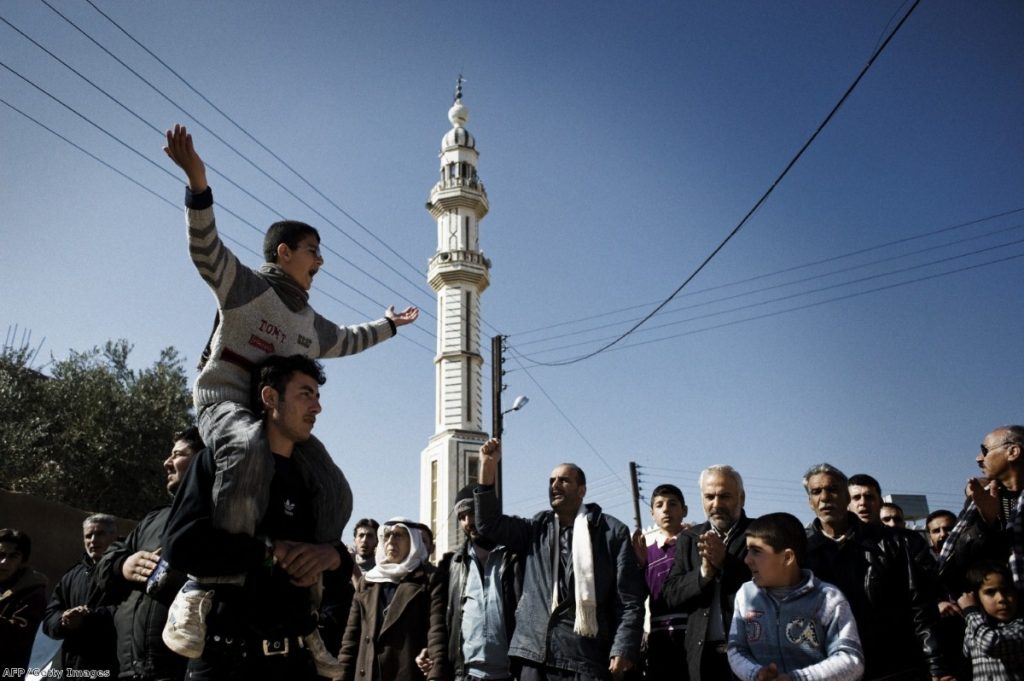The Nobel Peace Prize proves Arab countries can become healthy democracies
By Nejib Jeridi
The real winner of the Nobel Peace Prize isn't just the Tunisian National Dialogue Quartet – it's the people of the Middle East and North Africa, whose dwindling hope in the promise of the Arab Spring can be rekindled by Tunisia’s success.
Many people expected this year’s Prize to be awarded to a high-profile candidate like Raif Badawi, or Angela Merkel, or even the Pope. All would have been worthy winners. But none of them demonstrate that Arab countries can join the democracy club.
Anyone doubting the wisdom of the decision to award the Peace Prize to a group of Tunisian civil society organisations should remember just how much is at stake in the region.


The Tunisian National Dialogue was a joint initiative between four very influential and legitimate organisations. Their intervention, in 2013, came at a time when both the government and the National Constituent Assembly faced respective crises of confidence.
Tunisia’s democratic transition was on the brink of turning to chaos, as had already happened to some other countries in the region. An unexpected political assassination of one member of the Tunisian parliament had enlarged the crisis. There was a danger that the country’s legitimate institutions would be dissolved without being replaced by any other constitutionally valid alternative.
This was the moment for a joint initiative from the Tunisian Workers’ Union, the Tunisian Union for Trade and Industry and Handicrafts, the Tunisian Bar Association and the Tunisian Human Rights League – the four bodies who would later be called the Quartet. They offered to sponsor an informal dialogue between the key political parties. The first discussion on a roadmap for dialogue took place in July 2013 and led to the first meeting in October 2013.
As their discussions progressed the dialogue increased the common space between the different players. Eventually an agreement was reached, leading to the Tunisian parliament resuming its activities after having been effectively suspended for around four months. The agreement also included the installation of a new technocrat government and the adoption of the new Tunisian Constitution, in January 2014, which was passed by 200 votes out of 216. The government led the country until the organisation of fair and transparent legislative and presidential elections in late 2014.
We should remember that the Quartet’s success was never guaranteed; its initial intervention came at a moment when Tunisia was still in a post-revolutionary mindset, without a constitution and without stable legitimate institutions. Tunisia’s unresolved disputes, mainly around the legitimacy of the parliament and who was to blame for the assassinations, could have easily resulted in bloodshed on the streets. Instead of succumbing to the temptation to impose a solution on the political parties, the Quartet allowed them to meet and explore the possibility of reaching a solution in which all parties would be winners. All those involved had to make difficult concessions, but all ultimately emerged as winners. Tunisia was the biggest winner of all.
And now the Nobel Peace Prize has handed Tunisia another big victory, at a time when trust in the promise of democracy across the region is seriously weakened. This recognition of the Quartet’s efforts might encourage political rivals in other countries in the region to set aside their disagreements and look for possible common space to engage together in a similar process of consensus-building. Doing so could help their national interests – and help ensure disputes are resolved in political arenas, rather than exporting them to the streets. This year’s Nobel Peace Prize award could help save lives across the Middle East and North Africa.
Nejib Jeridi is Tunisia Country Representative for the Westminster Foundation for Democracy , an arms-length body of the FCO which supports around 20 transitioning and developing democracies by implementing parliamentary strengthening programmes.
The opinions in Politics.co.uk's Comment and Analysis section are those of the author and are no reflection of the views of the website or its owners.

